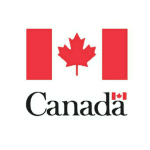Apply for all Categories of Canada Work Visas: The Canadian immigration department will offer two different forms of Canada Work Permits. The first one is known as Canada’s Temporary Foreign Worker Program (TFWP), and it requires a Labour Market Impact Assessment (LMIA) in order for an international worker to be granted a Canadian Work VISA. The LMIA is not required for the second category of Canadian Work VISA, known as the International Mobility Program (IMP). One of the first nations to open up immigration and work visas was Canada. Canada has encouraged skilled people to migrate in order to support economic growth.
The nation is recognized as one of the top locations for immigrants since it offers fantastic opportunities for both personal and professional growth.
Canada is the best place to live if you want a higher standard of living and more income. All professionals who are interested in working abroad consider Canada to be their home.
I believe there may be several reasons why people are applying for jobs in Canada because of easy immigration programs for skilled international workers, whereas if you want to know how much is required to apply for a Canadian work VISA then it is around CAD$155 per app.
This country’s reputation as one of the world’s most sought-after travel destinations is due to its genuine work permits and numerous types of work visas, easy job finding, and flexible immigration systems.
I would also like to point out that there are several career prospects for Canadians in the industries of IT, engineering, construction, health care/pharmaceuticals, telecom, aviation, and aerospace.
Advantages from Working in Canada
You should feel free to expect at least the minimum salary published by the Canadian government for all occupations, which you may check below, if you want to start a job in Canada:
- The hourly minimum wage in Canada is $15.50.
- Facilities for healthcare insurance
- Compassionate Care Benefits (CCB)
Canadian Work Permit Types
There are two types of Canada work visas or work permits, the first of which is the Temporary Foreign Worker Program (TFWP), for which LMIA is required.
The other type of Canada work visa is known as the Permanent Resident Program (PRP), for which LMIA is not required.
If you’re wondering why you need a Canadian work permit, let me explain that the PRP is essentially a permission from the Canadian immigration department allowing you to enter Canada to start a job.
Work Permits for the Temporary Foreign Worker Program
(Via a labor market impact analysis)
Temporary Foreign Worker Program (TFWP): To fill skill gaps, recruiters in Canada have the option of temporarily hiring foreign nationals under the TFWP. Under the TFWP, employers are allowed to achieve this by hiring high-wage workers, low-wage workers, members of the global talent stream, foreign agricultural workers, domestic helpers, and foreign academics.
Facilitated LMIA (Quebec): The province is typically treated differently from other provinces’ migration programs since Quebec has more freedom in its immigration policy than other provincial governments do. The simplified LMIA process in Quebec makes it simple to hire international workers.
Global Talent Stream: The Global Talent Stream is a subcategory of Canada’s Temporary Foreign Worker Program. The GTS focuses on making the work permit application transition straightforward for some Canadian recruiters so people may continue to be competitive abroad.
Canadian International Mobility Program (IMP):
Would You Like To Apply For This Jobs/Sponsorship?
Enter Your Email Address HERE & You Will Receive a Notification About Your Application. If it shows "Subscribed" CLICK HERE to follow on Telegram for updatesCompanies in Canada are permitted to use the International Mobility Program (IMP) to hire temporary foreign workers without first conducting a Labour Market Impact Assessment (LMIA). Many LMIA waivers have conditions, like the prerequisite that migration contributes value to the country.
Work Permits under NAFTA: Thanks to the NAFTA Professionals clause, specialists have the option of applying for a Canadian work permit without submitting an LMIA. To be eligible under this policy, a professional must have experience in a profession on the NAFTA Professionals List of Occupations and possess a work offer from a Canadian company.
Work Permits: CETA presents excellent opportunities for EU nationals to work in Canada. A work permit or the labor test may not be required for foreigners who are eligible to work in Canada under CETA standards.
Transfers inside a Company: The International Mobility Program of Canada provides details on the rules governing the temporary employment of highly qualified foreign nationals in Canada as transferees within a Company.
A non-citizen employee of a multinational can qualify to transfer to one of the company’s Canadian operations with the use of an LMIA-exempt work visa. Each nation requires an intra-company transferee permit.
No LMIA, Employment Contract, or Labor Test Required for Canada Open Work Permits
Post-Graduation Work Permits (PGWPs) are a type of Canadian work permit that are given to international students who have successfully completed a degree program at any Canadian university. They essentially give Canadian employers the go-ahead to employ foreign students who have received their education in Canada.
Spousal Sponsorship from Canada: If your spouse is already employed, engaged in school, or sponsors you for permanent residence in Canada, you may be eligible for an open work permit. Via a number of programs, young people from participating countries are given the opportunity to temporarily visit, reside, and work in Canada.
Foreigners who participate in IEC programs are eligible to apply for a Canadian work permit without having to pass a labor exam. The IEC, commonly referred to as the working holiday visa, is a type of permit that is valid for a full year.
Bridging Open Work Permit (BOWP): The BOWP enables foreign nationals to continue working while awaiting approval for permanent residence.
Spouse Accompanying International Student or Worker: Foreigners who are married and have children are allowed to bring their families to Canada while enrolled in a full-time degree program if they cannot leave their family behind.






Interested from Nigeria. Thanks for your quick response
***alamu Alaikum I live outside Canada I need a job offer letter and his permit